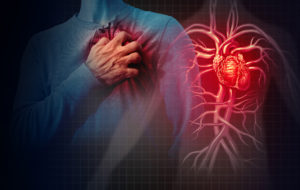
A heart attack may be the apex of congestive heart failure, a condition that can bring on symptoms that can be difficult to identify. Most people may simply pass them off as the result of age or being out of shape.
But these symptoms can give you a fair warning that your heart is not doing well and some lifestyle changes might be in order. The sooner you realize that and address them, the less damage you’ll do to your heart.
You’ve surely heard that adopting a heart-healthy diet like the Mediterranean or DASH diet can help you achieve a better cardiovascular outcome, or that getting more exercise can reduce the chances of a heart attack.
If you’re experiencing some of the following symptoms, a trip to the doctor and lifestyle changes should be imminent.
Here are some of the signs of congestive heart failure that may precede a heart attack:
- You have a very difficult time catching your breath.
- Any type of exercise/activity is a lot more difficult than it used to be. Even walking across the room can lead to a massive jump in heart rate.
- Laying down on your back leads to shortness of breath.
- Legs and feet swell up (due to fluid retention).
- You gain weight inexplicably, particularly in the mid-section (also a result of fluid retention).
- You have the need to urinate frequently (fluid removal, so you may not experience the belly swelling mentioned above).
- Constantly feeling fatigued.
- Nausea or a lack of appetite appear without explanation.
- Lightheadedness/confusion
- Hands and feet are regularly/always cold.
All of these symptoms indicate poor blood circulation and that your heart is not functioning optimally. They do not suggest that your heart has fully stopped working. However, they do suggest that your heart is not delivering, or receiving, blood to adequately supply the rest of your body.
You may have more warning of a heart attack than you realize, and how you’re feeling may not have anything to do with weight or fitness level. Recognize the signs of heart disease and do your best to prevent a major cardiovascular event.